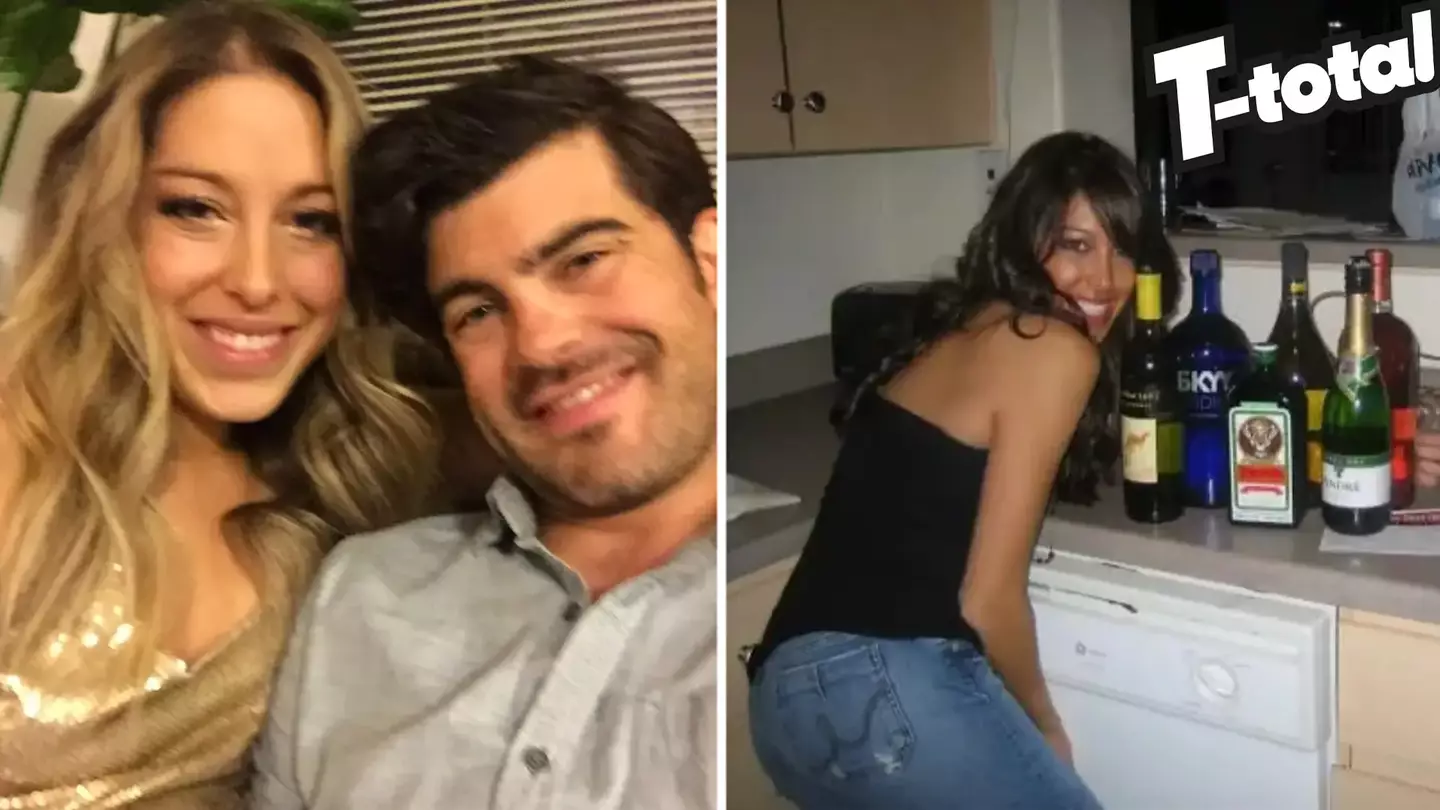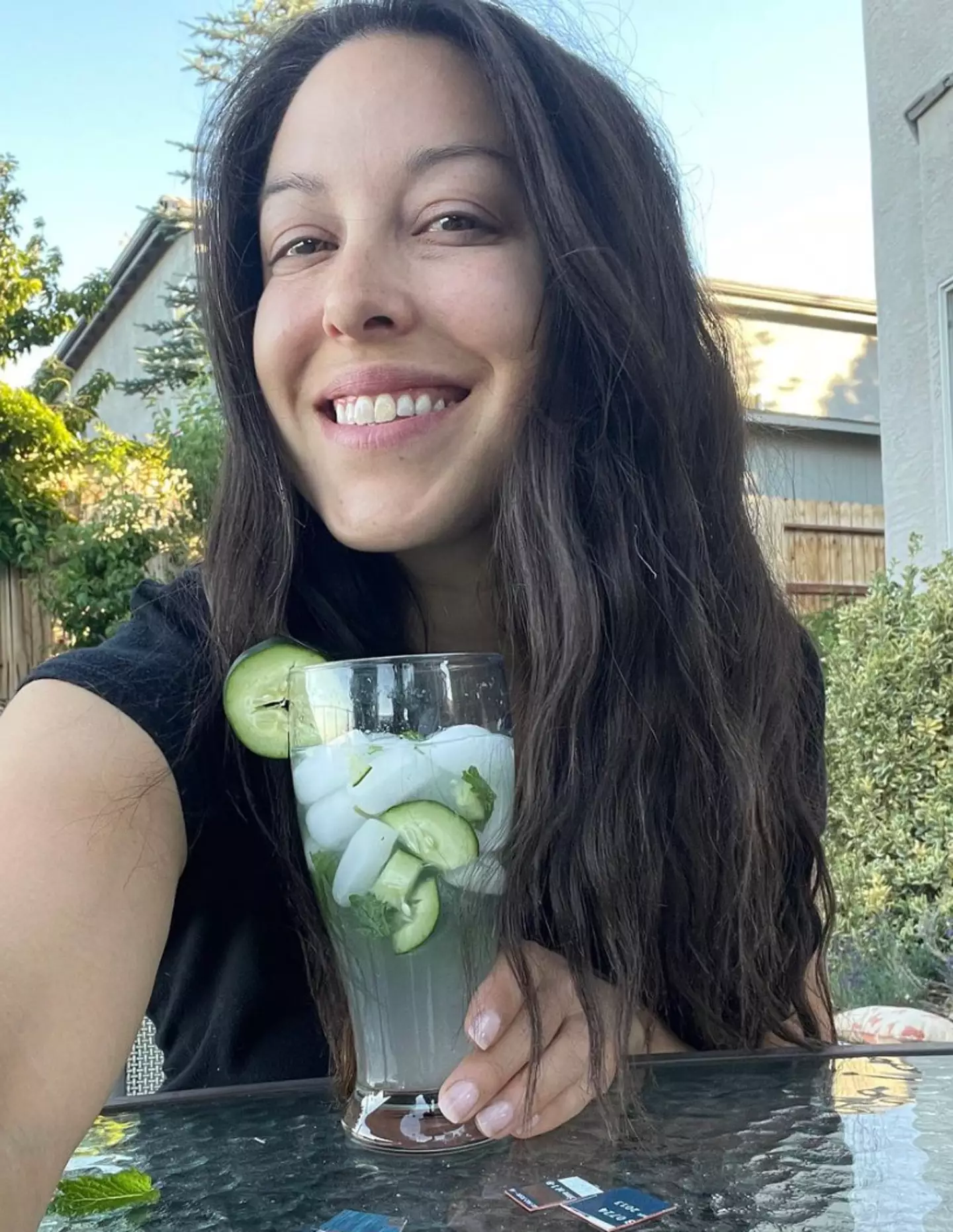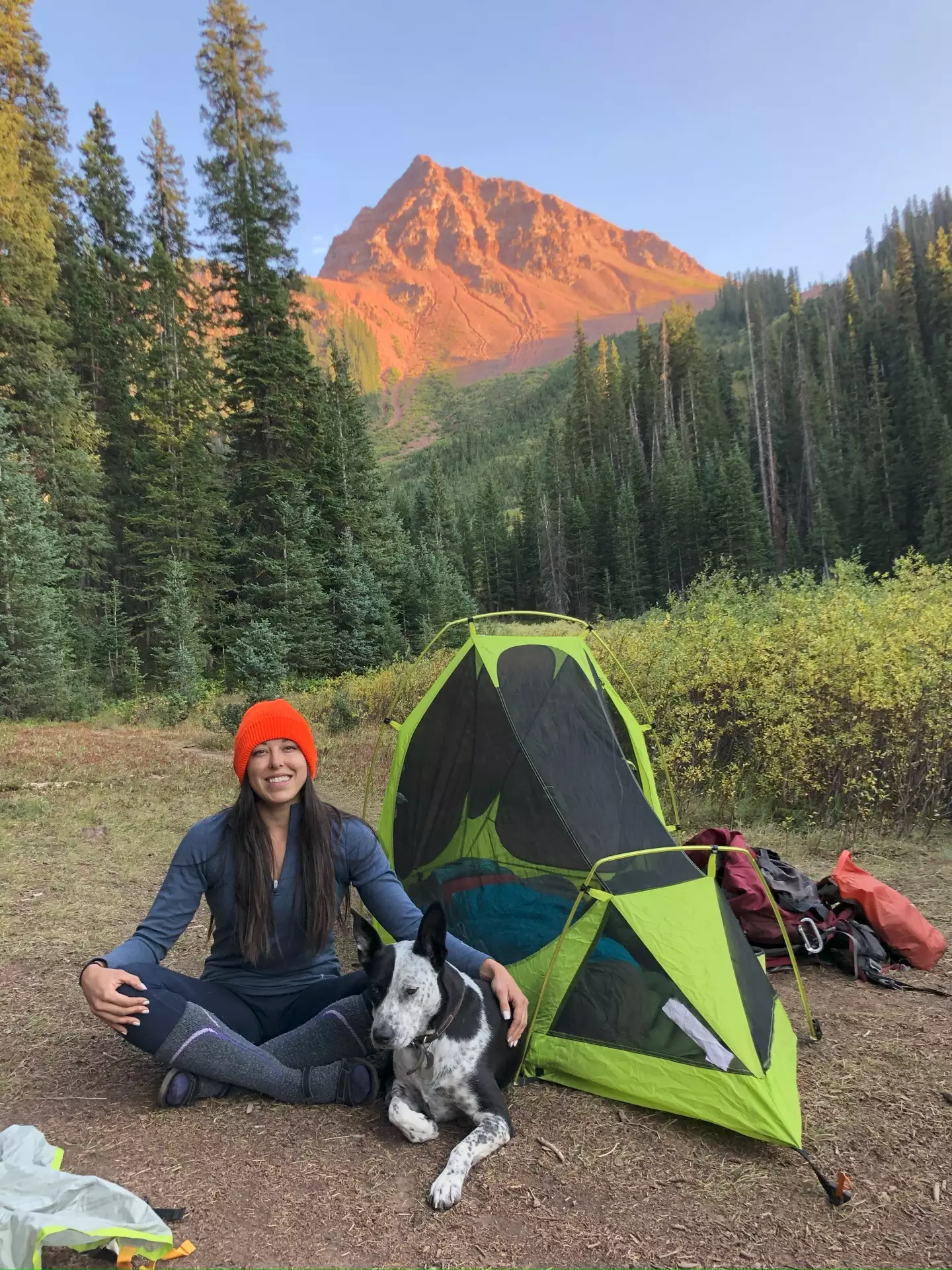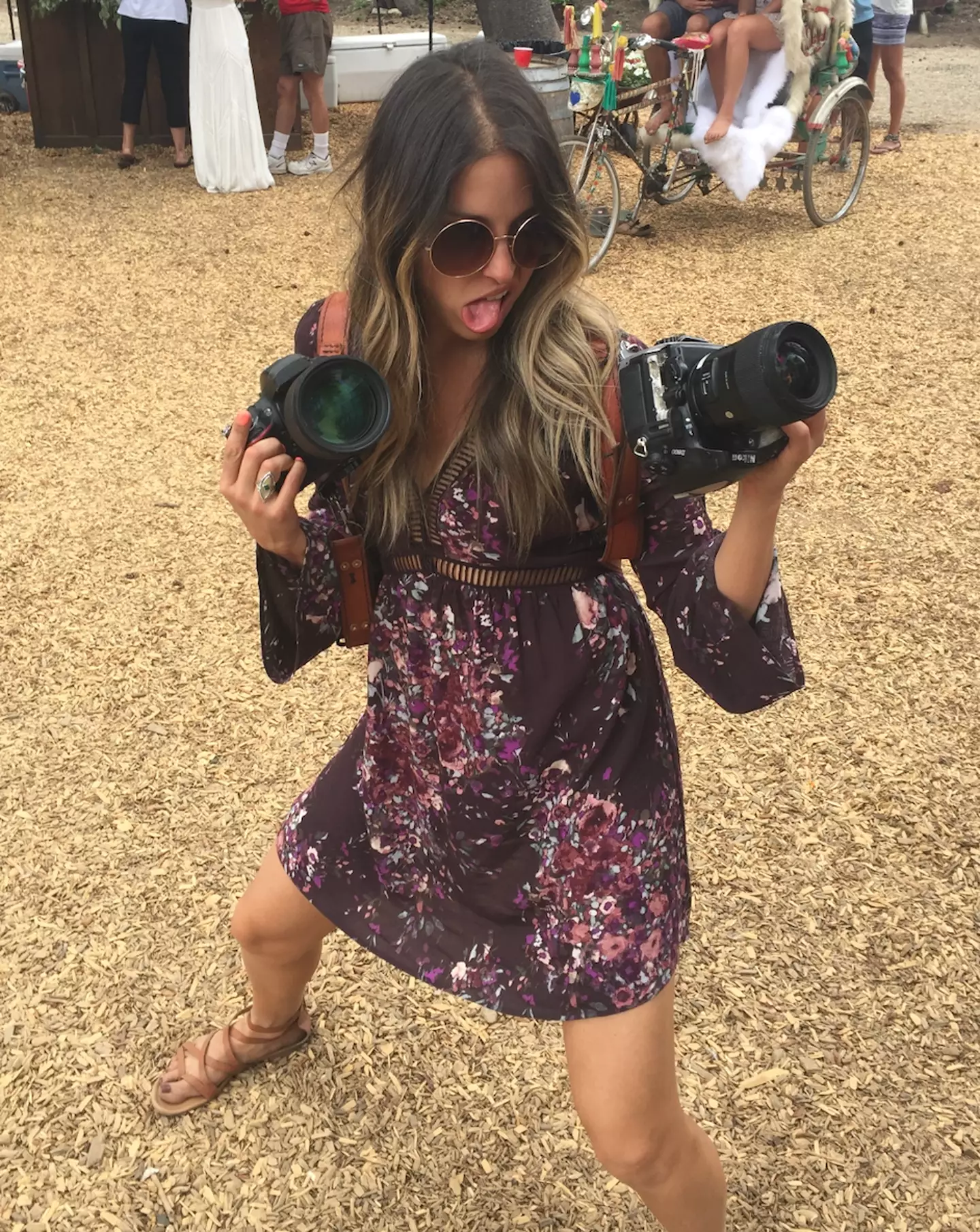
Trigger warning - this article discusses addiction which some readers may find distressing.
A woman who was drinking up to four bottles of wine every night has spoken about her recovery journey and the one question she claims can help determine if somebody has a problem with alcohol.
Laura Van Antwerp, 39, from Pennsylvania, started drinking when she was a teenager, before eventually quitting at the age of 33.
After years of trying to hide her addiction, job demotions, drinking under the influence (DUI) charges, and a 'rock bottom' incident where she woke up in a public place after blacking out, she made the life-changing decision to cut out alcohol for good.
Advert

Now seven years sober, Laura is the founder of Your Sober Pal, where she helps others who are struggling with addiction.
Free from alcohol and the control it had on her life, Laura is now thriving, but it hasn't always been so straightforward.
"I first started drinking at 18 and immediately jumped into the party scene," Laura tells Tyla.
"I was a binge drinker and loved the lifestyle, and when I went to college, the partying just continued. By the time I graduated, I had no idea what to do with my life and ended up moving to a skiing resort in Tahoe."
Laura says moving to Tahoe was like 'Peter Pan Syndrome' - a phrase coined to describe adults who have difficulty taking on adult responsibilities.
"I never grew up. I partied and drank every night until my late twenties and I was constantly looking for an excuse to drink," she says.
"I tried to hide it because I didn't want to slow down, but people had started to notice it was becoming a problem.
"I was drinking two to three bottles of wine a night, sometimes four, and even more on the weekends.
"Every day by around 5pm I would have a really strong urge to drink. I'd try and say 'no, not tonight' but I'd eventually cave and head to the store to buy a bottle, which inevitably led to two or three more."

Laura continued heavily drinking until her late twenties, when the 'wheels eventually started to fall off' and a string of incidents made her reassess her relationship with booze.
"I got a DUI, I was demoted from my job, and I had woken up out of a blackout in a public space. I thought 'how did this happen?' I knew in that moment I didn’t want to spend the rest of my life fighting to control my drinking," she explains.
Alcohol had also started to impact Laura's relationships too, with her now-husband Karl admitting their relationship wouldn't have lasted the test of time if she hadn't made the decision to quit.
"At the time, I was in a new romantic relationship, and I was hiding my drinking from him, but it absolutely affected our relationship. It really robs you of your confidence, you feel like you can’t do anything without it, and over a few months, it was impacting my moods and how I showed up for him," she says.

"My relationship has now healed, but I wouldn’t be in my marriage if I was drinking.
"Same with my friendships, I couldn’t be there for my friends in the way they needed me to. That’s something I’ve really been working on since I got sober."
Laura managed to overcome her addiction after enrolling in a 12-step programme in her hometown. Now, she helps others who have ditched alcohol and those who are trying to leave it behind.
If you're unsure whether your relationship with alcohol is becoming unhealthy, Laura explains there's one question you should ask yourself to help determine if there's a problem.
"When you have a drink, are you satisfied or are you craving more?" Laura asks.
"That’s usually a big sign. True moderate drinkers feel satisfied with a drink whereas someone with a drinking problem - or someone going in that direction - will typically crave more. That only gets stronger over time."

Laura continued: "I knew from myself, I had to fight to have one drink and I was still obsessed with wanting more. That’s not normal or healthy and I didn’t want to waste my energy feeling that way."
Describing her journey to sobriety as a 'slow unravelling', Laura faced numerous struggles and relapses before she eventually quit for good, having her final drink on 1 August 2017.
During one particularly devastating relapse, Laura had been seven months sober when she attended her friend's wedding and ended up getting drunk.
She hasn't had a drink since that day.

"I never thought it would happen for me, but it changes your whole life. The biggest reward was feeling like you can trust and respect yourself again," she says.
"With addiction, every day you’re promising not to drink too much, and you’re constantly breaking promises with yourself.
"But when I quit, I was following through with all my promises. It was such a special feeling that I could count on myself again.
"I sometimes think back to the girl who was struggling and I do get emotional because I want to give her a hug and tell her to never give up. I’m so proud of her for doing things she didn’t want to do."
If you want to discuss any issues relating to alcohol in confidence, contact Drinkline on 0300 123 1110, 9am–8pm weekdays and 11am–4pm weekends for advice and support.
Or alternatively, visit drinkaware.co.uk/alcohol-support-services.
Topics: Alcohol, Food and Drink, Health, Mental Health